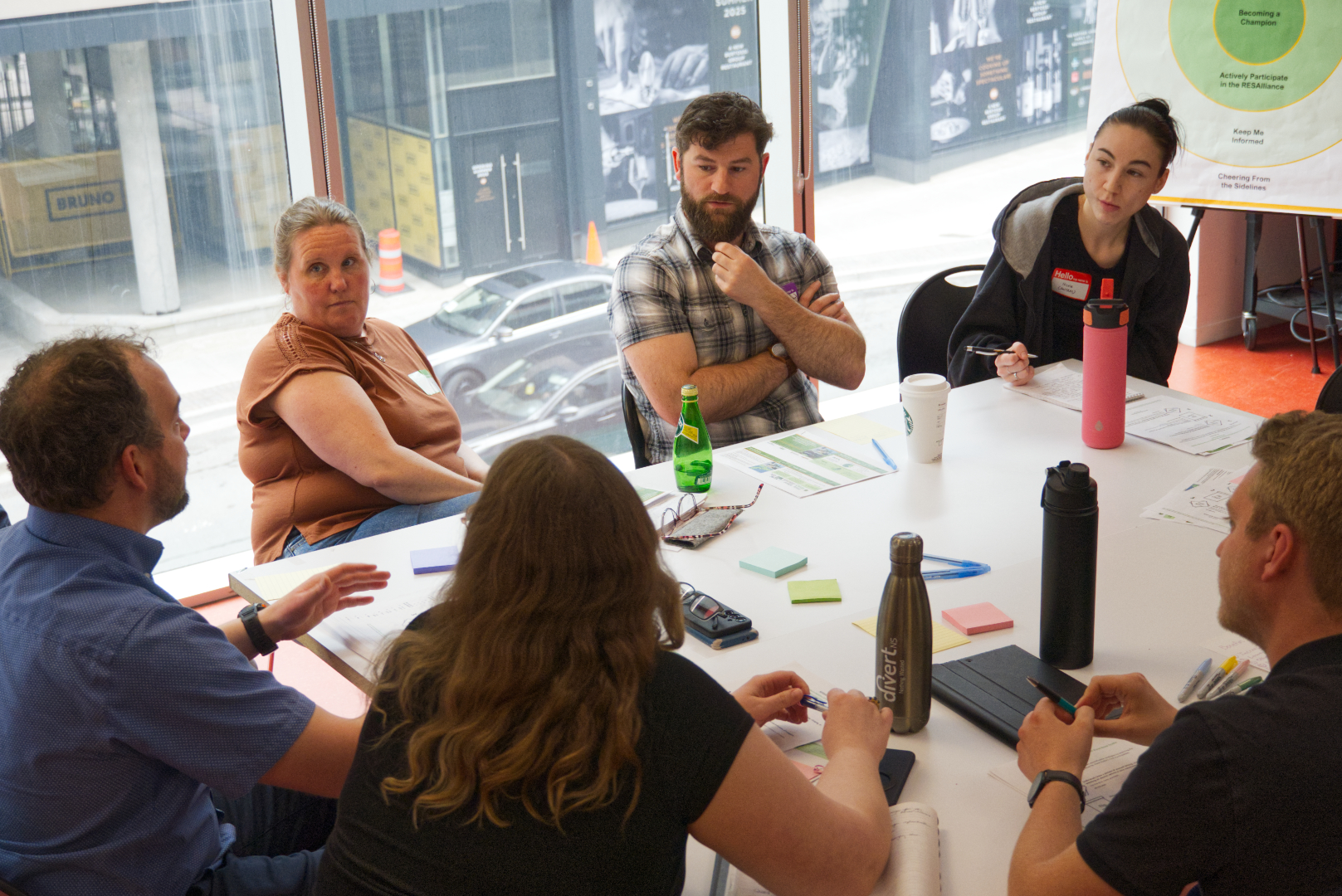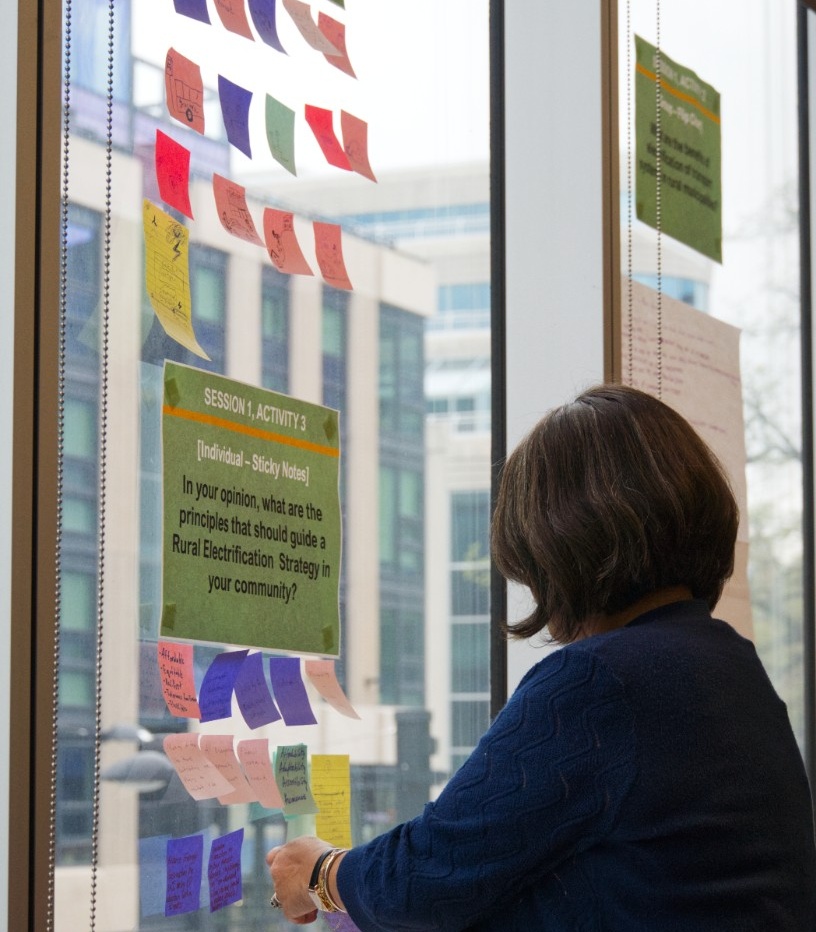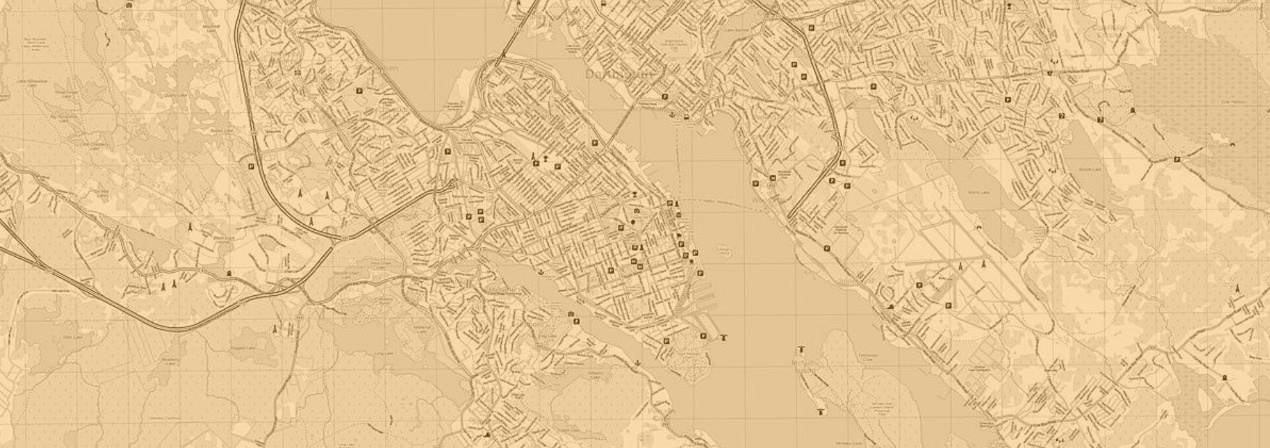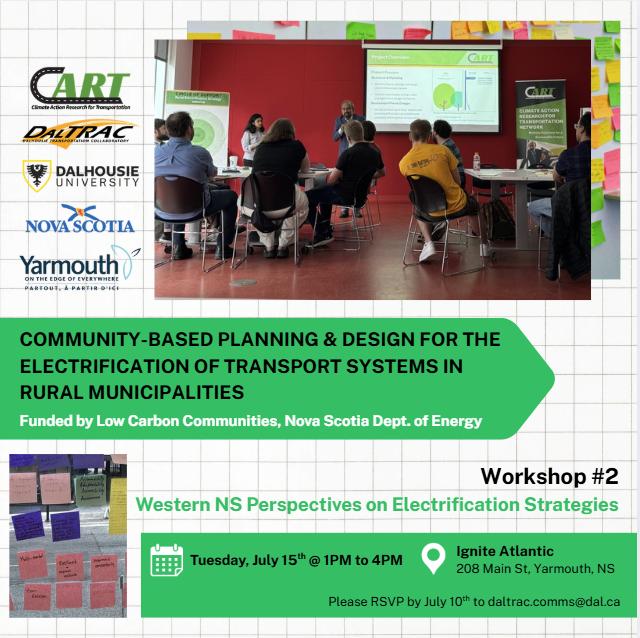Stakeholder Engagement
Community-Based Planning & Design for the Electrification of Transport Systems in Rural Municipalities
Engagement with stakeholders has been central to this project from the very beginning. By collaborating with rural municipalities, community organizations, provincial agencies, and transportation advocates, this initiative has ensured that local knowledge, priorities, and lived experiences shape the planning and design of rural electrification strategies.
The engagement process has included early sessions that helped inform the projectās development, as well as a series of structured workshops designed to guide the projectās implementation.
Pre-Project Engagement Sessions
Ģż
Workshop #1 Electrification Strategies
May 16, 2025 | Halifax, NS
The first in-person workshop was held at the Halifax Central Library and brought together stakeholders from rural municipalities, transit organizations, non-profits, and provincial agencies. The session began with a presentation on the state of rural transport electrification in Nova Scotia, including findings from the NovaTRAC survey. Key issues identified included affordability, infrastructure gaps, and the need for community-based solutions.
Participants took part in activities to explore their perceptions of EVs, identify benefits of electrification, and suggest guiding principles and strategies to support a net-zero future. The idea of creating the Rural Electrification Strategies Alliance (RESAlliance) was introduced to build momentum and collaboration across the province.
 Ģż
Ģż
Key Takeaways
- Participants expressed strong interest in flexible and locally driven electrification solutions.
- There was an emphasis on expanding public education and supporting municipal partnerships.
- Transit electrification emerged as a recurring theme, signaling the need to explore it more deeply in future workshops.
This session laid the foundation for continued engagement and helped surface early insights into the opportunities and challenges facing rural electrification in Nova Scotia.

 Ģż Ģż |
This project is supported by the Low Carbon Communities program through the Nova Scotia Department of Natural Resources and Renewables. |

 Ģż
Ģż